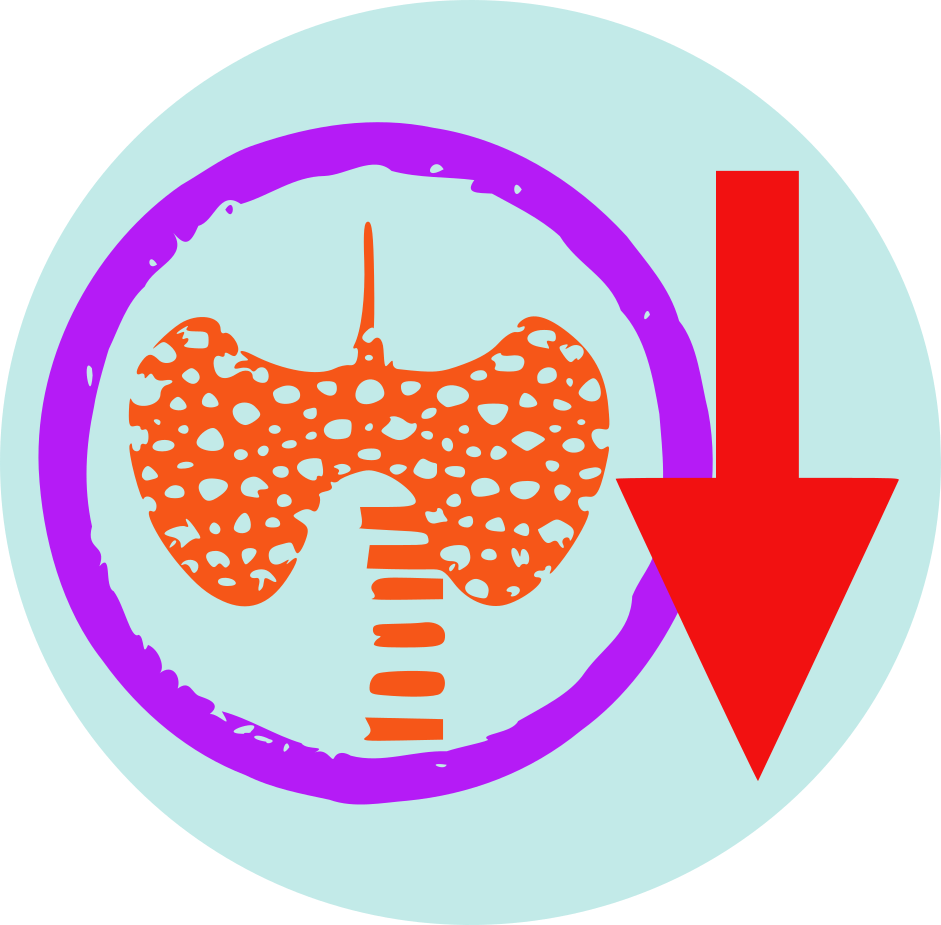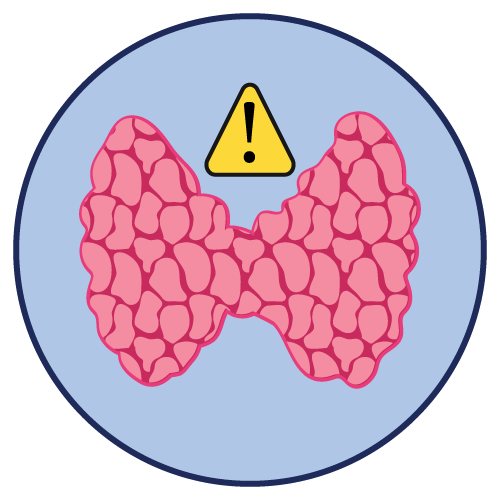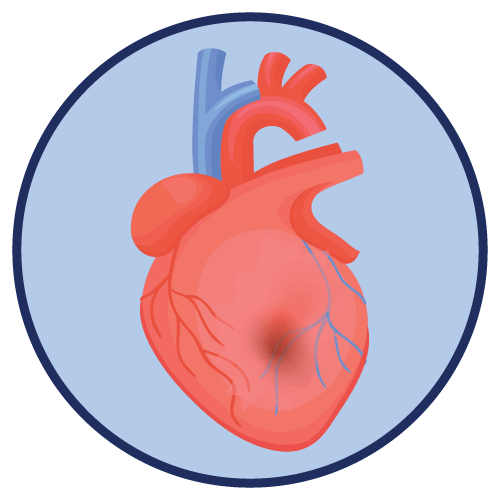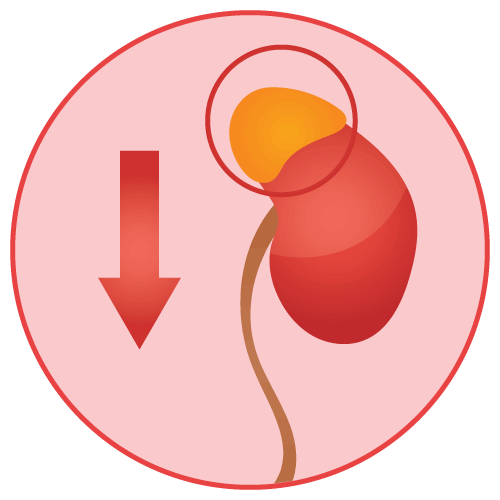| Name | Levothyroxine Sodium |
| Classes |
Hormonal Agent |
| Diseases |
Goiter Hormonal Disorder Hypothyroidism |
Levothyroxine Sodium
Levothyroxine sodium is a synthetic form of the thyroid hormone thyroxine (T4). The thyroid gland normally produces thyroxine, which regulates metabolism and growth and development. When the thyroid gland does not produce enough thyroxine, levothyroxine sodium is used to replace the missing hormone.
Levothyroxine sodium is indicated in-
- Hypothyroidism
- Goiter
- Congenital hypothyroidism
Adults:
- The starting dose for Levothyroxine Sodium for patients with primary hypothyroidism is 25-50 mcg/day, and it can be gradually increased by 12.5-25 mcg every 6-8 weeks until the patient is clinically euthyroid and their TSH levels are normal.
- For those with severe hypothyroidism, the initial dose is 12.5-25 mcg/day, and it can be increased by 25 mcg every 2-4 weeks while monitoring both clinical symptoms and lab results until the TSH level is normalized.
- In cases of secondary or tertiary hypothyroidism, the dose of Levothyroxine Sodium should be adjusted until the patient is clinically euthyroid and their free T4 levels are in the upper half of the normal range.
- For patients older than 50 years or those under 50 with underlying heart conditions, the recommended dose is 1.7 mcg/kg/day.
Newborns:
For infants, the suggested starting dose is 10-15 mcg/kg/day. However, a smaller dose may be considered for infants who are prone to heart failure, and the dosage can be gradually increased every 4-6 weeks based on the patient's clinical and laboratory response. In cases where the infant's T4 level is extremely low or undetectable, a starting dose of 50 mcg/day of Levothyroxine Sodium is recommended.
Side effects:
- Increased sweating
- Nervousness
- Headache
- Nausea
- Insomnia
- Diarrhea
- Abdominal cramps
- Weight loss
- Chest pain
- It is dangerous to administer high doses of Levothyroxine Sodium Injection (over 500 mcg), as it can lead to cardiac problems, especially in the elderly or in patients with heart issues. The administration of large doses of Levothyroxine Sodium for Injection may cause heart-related adverse events, such as heart arrhythmias, rapid heart rate, decreased blood flow to the heart, heart attack or the worsening of heart failure, which could lead to death. Therefore, it is advisable to be cautious and use lower doses, especially in these populations, and closely monitor patients after administering Levothyroxine Sodium for Injection.
- Patients with adrenal gland problems, heart problems, or a history of blood clots should use levothyroxine sodium with caution
- Levothyroxine sodium should not be used during pregnancy, except in cases where it is necessary for the treatment of hypothyroidism
- It is important to inform the healthcare provider of any allergies, pre-existing medical conditions, or other medications being taken before starting treatment with levothyroxine sodium.
- In some cases, autoimmune thyroiditis, which can result in myxedema coma, may develop along with other autoimmune disorders such as adrenal insufficiency, pernicious anemia, and insulin-dependent diabetes. Before starting treatment with Levothyroxine Sodium for Injection, patients must receive replacement glucocorticoids until their adrenal function has been properly evaluated. Failing to do so may cause an acute adrenal crisis when thyroid hormone therapy begins, due to the increased metabolic clearance of glucocorticoids caused by the thyroid hormone. When starting Levothyroxine Sodium for Injection, patients with myxedema coma should also be monitored for diabetes insipidus that may have gone undiagnosed.
Contraindication
Levothyroxine is contraindicated in patients with known hypersensitivity to the drug.
None known.
Levothyroxine is contraindicated in patients with-
- overt thyrotoxicosis
- recent myocardial infarction
- uncorrected adrenal insufficiency.
- Additionally, levothyroxine should not be used as a primary or adjunctive therapy in the treatment of male or female infertility unless this condition is associated with hypothyroidism.
 Bangla
Bangla English
English









